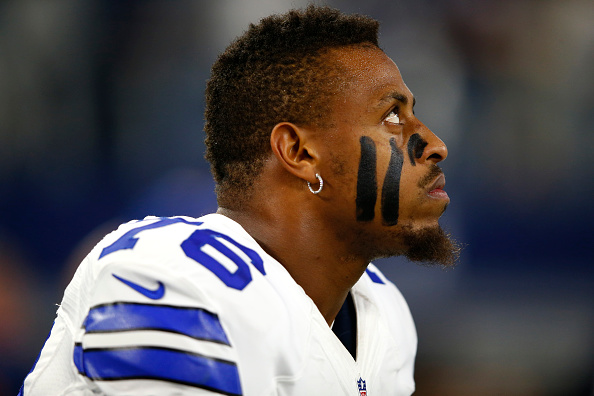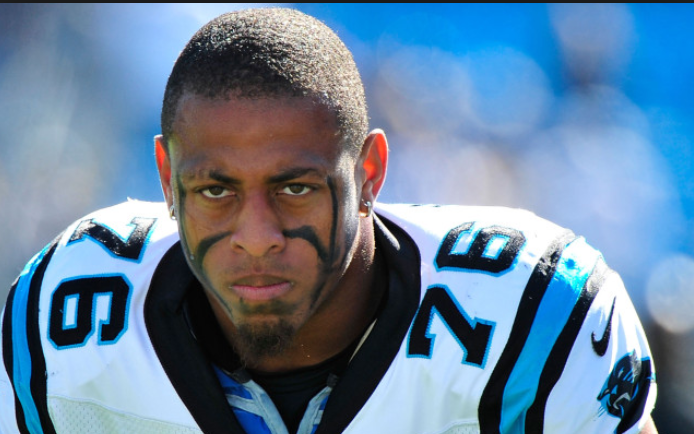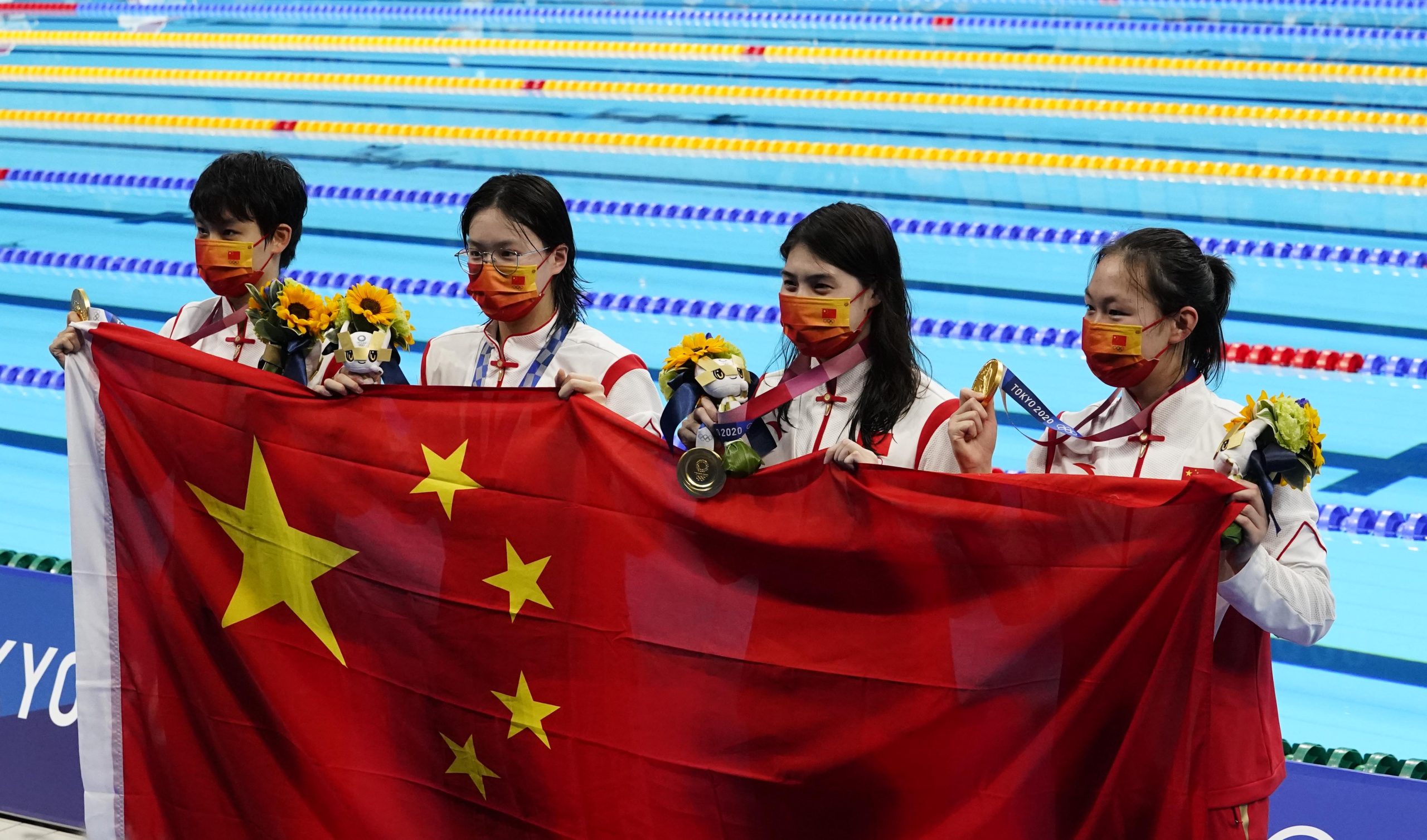If you wanted to gauge the success of Greg Hardy’s attempt at rehabilitation, at his effort to reshape his public perception in hopes of continuing his NFL career, you really didn’t have to look very hard. You didn’t have to dive into the wave of responses on social media. You didn’t have to listen to callers reacting on talk radio.
Heck, you didn’t even need to change the channel, or wait more than a few moments, after Hardy’s exclusive one-on-one with ESPN’s Adam Schefter was finished airing. NFL Live’s Trey Wingo, leading the in-studio discussion that followed the interview, basically summarized everything you needed to know.
“Let’s just start here,” Wingo offered to the panel, “Adam said his people felt he had nowhere to go but up. I would disagree after listening to that. I think it actually got worse.”
Wingo was hardly alone in that assessment. Darren Woodson, also speaking on NFL Live, added that he was “surprised that his agent Drew Rosenhaus let him get in front of the camera. I felt like it was that damaging.” Jemele Hill, speaking on His and Hers, called Hardy “despicable,” and expressed hope that he “never wears another NFL uniform again.” And in addition to speaking out during the show she hosts, SportsNation, Michelle Beadle also made her feelings known in a tweet.
For the love of f&$@. Dude doesn't admit to wrongdoing. Dude has changed? I give the hell up.
— Michelle Beadle (@MichelleDBeadle) April 5, 2016
Suffice it to say that Hardy’s interview was not received as he, and his team, probably intended. Especially consider that all of this reaction came from the very network that was televising it in the first place. But then, this widespread condemnation should hardly come as a surprise, given that the 27-year-old free agent defensive end employed every conceivable strategy to garner sympathy, only to watch them all fall flat.
In the course of his two-part sit down with Schefter, Hardy tried to show contrition, arguing “I will stop you there and say that I didn’t say that I didn’t do anything wrong,” while also continuing to deny the accusations leveled against him, saying “I never put my hand on any women. In my entire life, no sir.” He made cursory attempts at taking responsibility, acknowledging “I put myself in these situations. I didn’t do well enough,” while also casting himself as “a leper of sort,” who was, in many ways, the victim. “I came out of it and still suffer repercussions of it.”
During an interview with @AdamSchefter, Greg Hardy denied that he has ever hit a woman. https://t.co/PW0Rh1fNvKhttps://t.co/VevnAkxxuU
— NFL on ESPN (@ESPNNFL) April 4, 2016
And while he promised that any team he signed with in the future would be getting a changed player — “A franchise player should act like a $22 million dollar man,” he said — Hardy could not stop himself, in the interview’s single, most infuriating moment, from casting aspersions on his accuser, calling her credibility into question, even insinuating that she may have somehow tampered with evidence.
“Pictures are pictures,” said Hardy, demonstrating once more how utterly callous and unchastened he remains, “and they can be made to look like whatever they want to.”
In other words, Greg Hardy ran every play that we’ve come to expect from these serious, candid, honest attempts to take back the narrative, only to have the story he told come across as utter gibberish. It doesn’t take a PhD in American Studies to know that claiming domestic violence is “nonexistent in most southern homes,” is totally baseless, nor does it require a legal scholar to explain that a guilty verdict in the initial bench trial is not “just a product of miscommunication.”
"Do I feel like Greg Hardy is believable? Absolutely not." – @darrenwoodson28 pic.twitter.com/J11JlgxZKj
— NFL on ESPN (@ESPNNFL) April 5, 2016
That, ultimately, is part of the problem for Hardy. Having watched so many of these PR puppet-shows, it’s only natural that we begin to see the strings. And it wasn’t just the viewers at home who noticed.
“The request had been made a couple of different times,” Schefter himself noted, when asked by Wingo how the Hardy interview came together, “and obviously a month into free agency, when Greg Hardy hadn’t gotten any calls, at that point in time, he’s a lot more willing to speak than he had been earlier on.”
In an instant, ESPN’s insider had laid the whole enterprise bare, for everyone to understand. Greg Hardy had no interest in saying anything, until he, and his people, decided it was their only avenue back into the NFL. There’s nothing wrong with that, inherently, but don’t expect a whole lot of pats on the back for your sudden candor.

In fact, the timing of the interview says quite a bit about how things have unfolded since the events of May 13, 2014. Ultimately, the court system did not exact any punishment from Hardy, as prosecutors dismissed all charges prior to his appeal after being unable to make contact with his accuser. Similarly, NFL Commissioner Roger Goodell’s attempt at discipline did not fully stick, with an initial 10-game suspension reduced by an arbitrator to just four.
But the court of public opinion appears to be the one venue in which Hardy has no successful strategy. All 32 teams are free to sign the former Pro Bowler and to this point, all have declined. Undoubtedly, this has plenty to do not only with the accusations of violence, but also with the consistent headaches, in the locker room, on the sidelines, and on Twitter, that he created for the Dallas Cowboys last season. But it speaks volumes that all across the league, coaches and executives have decided that any potential production is outweighed by the increased scrutiny, and negative attention, that signing Hardy would bring to the organization.
This will not last forever, of course. In the most recent edition of his “Best Available NFL Free Agents” column, ESPN Senior Writer John Clayton puts Hardy atop the list as “the best player on the market, the only elite player left.” Speaking strictly of his ability between the lines, it’s hard to argue with him, and in a business where talent trumps all things, and pass-rushing remains a valuable commodity, it’s only a matter of time before somebody offers Hardy another chance. (Clayton’s best guess, and one that makes a great deal of sense, is that a team will come calling after failing to procure the rookie they were looking for in the NFL Draft later this month.)
Whenever that next contract comes, Greg Hardy, Drew Rosenhaus, and the team that offers the deal, should all be prepared for the torrent of criticism that will follow. Hardy’s rare skills within a violent, but lucrative game ensure that he’ll stay somewhat in demand. It’s also precisely why he’s still offered interview opportunities like the one he was afforded Tuesday. It’s unsettling and unsatisfying, to be sure, but it’s also the inevitable byproduct of a culture that worships football as we do.
But Greg Hardy can’t erase what happened two years ago from the public consciousness, and if his sit-down with Schefter was any indication, he clearly lacks the tools, the awareness, or perhaps the desire to properly atone. And so, for all the buildup, once Hardy actually had his chance in front of the cameras, all anyone could do was scratch their head.
“As a football player of my caliber,” he offered in yet another confounding response, “There are situations, inside that situation, where it has nothing to do with the situation, but I could have done better.”
No, it didn’t make a whole lot of sense. Which made it the perfect summation of an interview that no-one seemed able to explain.








